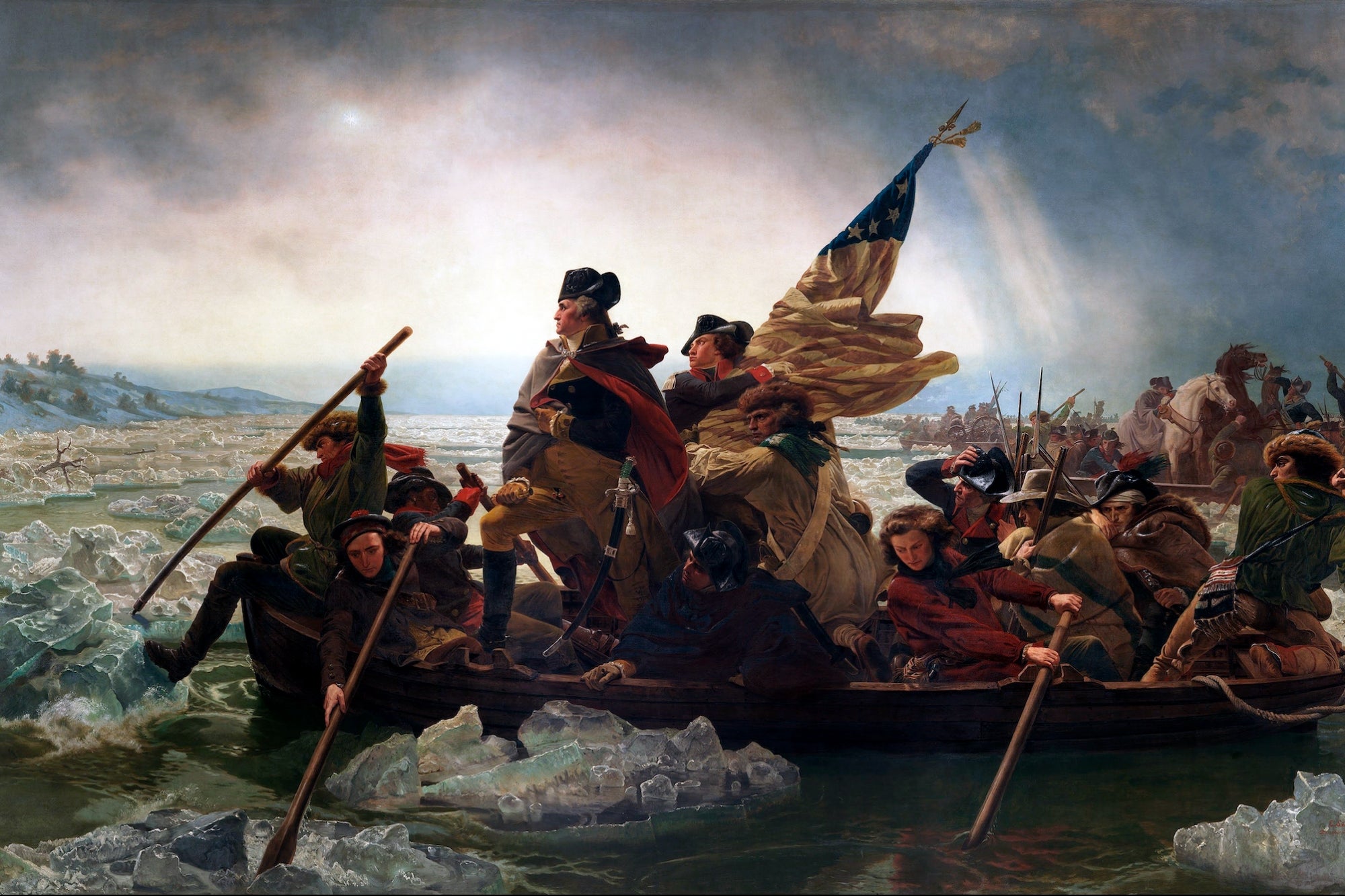
4 min read
Opinions expressed by Entrepreneur contributors are their own.
Today, on Independence Day, many are thinking of summer BBQs, water sports and beer drinking in celebration of our national holiday. However, there’s much to remember about the Fourth of July for entrepreneurs. As the founding fathers came together to write the Declaration of Independence, and consequently started the American Revolutionary War, there was something very entrepreneurial about their actions.
They took a great risk, perhaps the greatest risk, and followed their vision through all the hard work and impossible odds to create an independent America. They collaborated, invested in and gambled on the world they saw fit to create.
Related: Risk is the Admission Fee of Entrepreneurship
With the founding fathers as your ancestral mentors, here are five sage pieces of advice that will inspire every entrepreneur on their journey.
There! His Majesty can now read my name without glasses. And he can double the reward on my head! — John Hancock
Be bold.
John Hancock signed America’s Declaration so big and large that his name alone has now become synonymous with the word signature. You have to remember that signing this document was not just a declaration for America — it was a declaration of war and treason. They risked their lives, the safety of their loved ones and everything they owned to be independent from England. There is a bold brilliance about the outright madness, stubbornness and defiance of Hancock’s confidence in that risk.
To be an entrepreneur, you have to be unapologetic about your purpose and your vision. Hancock certainly was bold in his risk. Are you?
Do you want to know who you are? Don’t ask. Act! Action will delineate and define you. — Thomas Jefferson
Take action.
Much like risk requires boldness, achievement of your goals requires action. Thomas Jefferson pointed this out more than 200 years ago. Asking will only get you so far, then you need action. Take action and start creating your vision now!
Keep thy shop, and thy shop will keep thee. — Benjamin Franklin
Mind your business.
Not only is Benjamin Franklin one of the original signers of the Declaration, he was an entrepreneur and inventor. His printing press was famous for producing materials like his still-treasured Poor Richard’s Almanac, which dispensed all kinds of wisdom and sage advice for then and now.
Related: The 15 Ronald Reagan Quotes Every Business Leader Must Know
Franklin knew that to run a successful business, you have to mind your business properly. Ignore it or overdo it and your business won’t last long. Franklin believed in solid business practices. As an entrepreneur, so should you.
Old minds are like old horses; you must exercise them if you wish to keep them in working order. — John Adams
Always learn.
John Adams signed the Declaration on July 4, 1776, and would go on to become America’s second president.
This quote sums up the truth that all entrepreneurs already know: never stop learning. You must always be innovating, trying, tinkering and playing to keep your mind ahead of the curve. Innovation comes from constant learning. Don’t ever stop.
It is better to be alone than in bad company. — George Washington
Choose your company wisely.
Perhaps one of the most recognized and best known men in all of American history, General and later, President, George Washington led a courageous life of risk, sacrifice and service to his ideals. He knew it was better to forge a path alone than to wait on the sidelines with the wrong company.
Related: Why the 5 People Around You Are Crucial to Your Success
Entrepreneurs know the same and risk the scorn, criticism and naysaying of others to forge their own path and live their own vision. Being an entrepreneur can mean holding true to your ideals in periods of doubt or isolation.
Stay true to your unique mission and know that your company is better kept alone than mixed with a life that is someone else’s.
Note: This piece was originally published on July 4, 2014.
https://www.entrepreneur.com/article/235254

